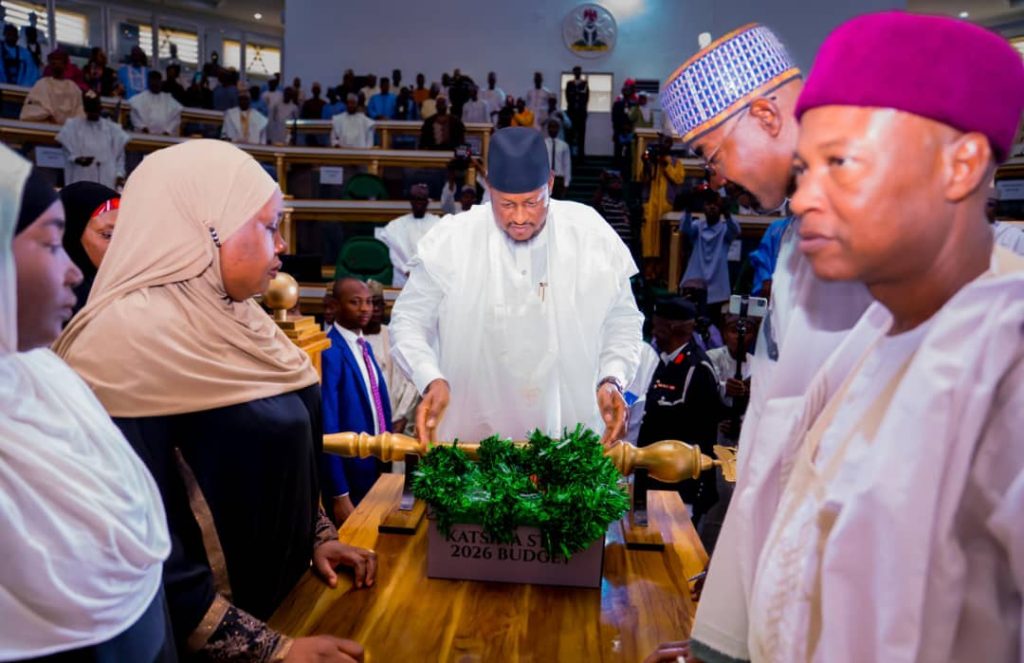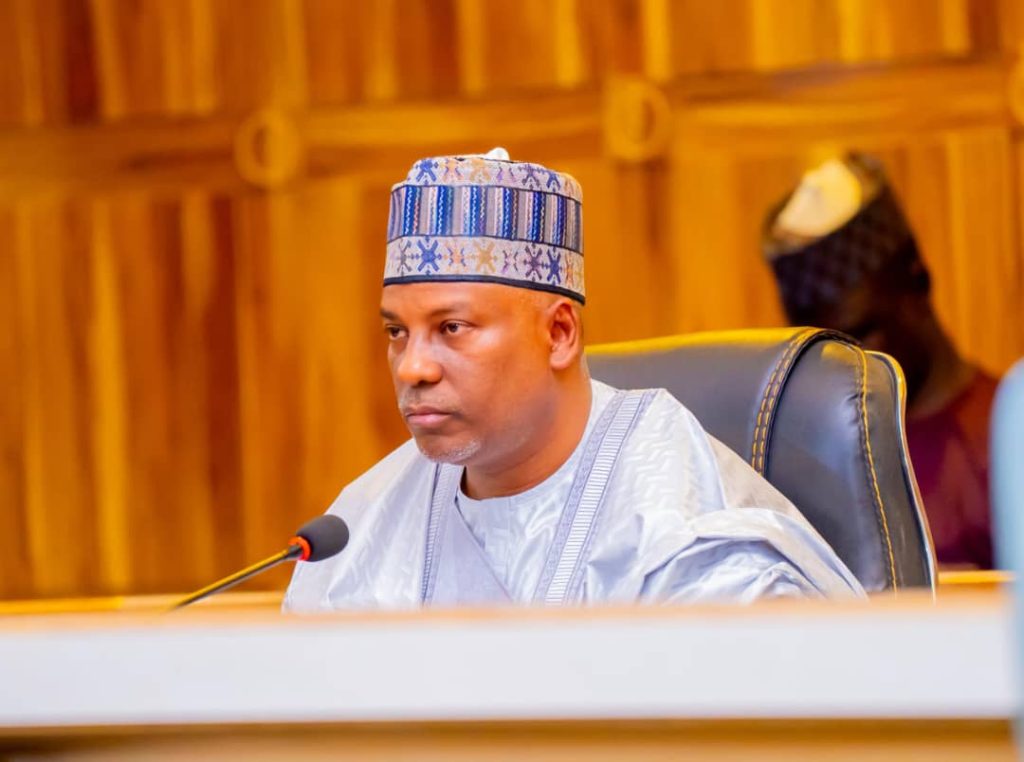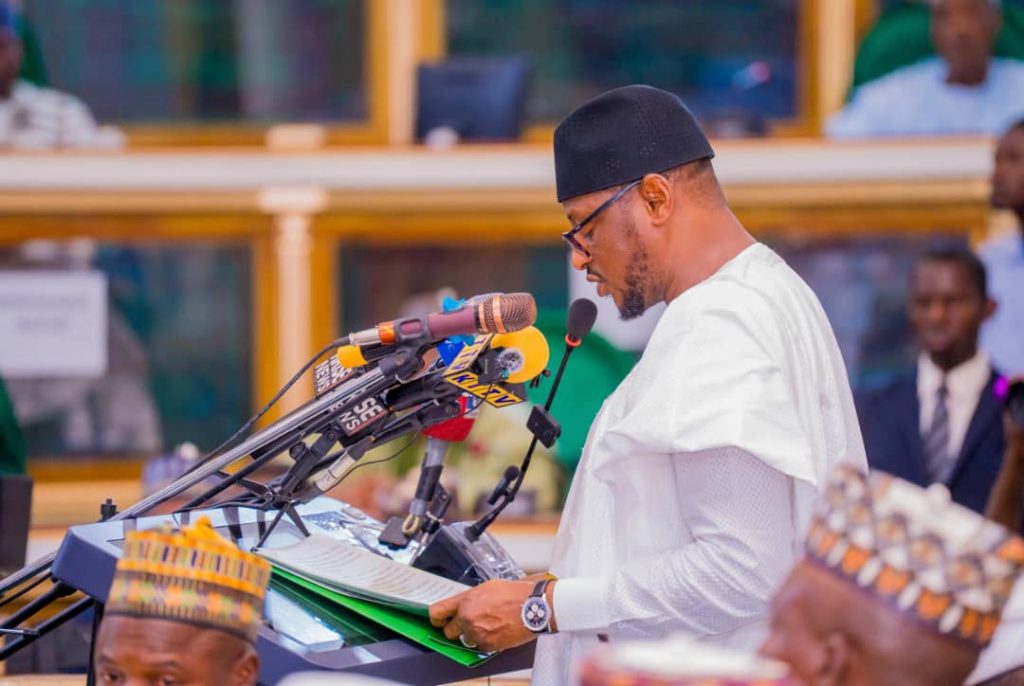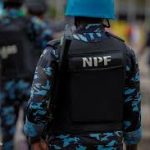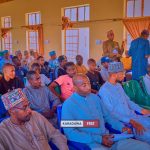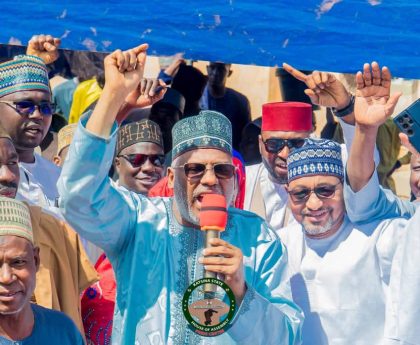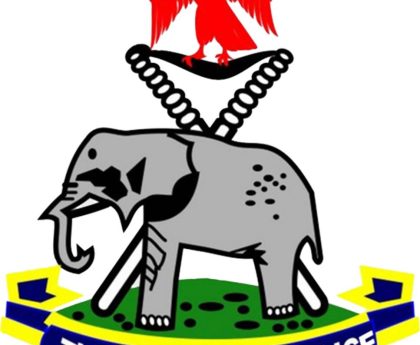By: Ibrahim Kaula Mohammed
He’s the people’s governor. Some call him a servant leader. In other fora, he’s called a visionary governor. These epithets capture Dikko Umaru Radda, the governor who has orchestrated what can only be described as democracy’s finest moment in Katsina’s history. He created a budget that carries the voices of 71,384 citizens, carefully sought the opinions of 6,649 households, and ensured that women (32.1% of attendees) and persons with disabilities (4.9%) were not mere spectators but active participants in shaping their state’s financial destiny.
The significance of this exercise goes beyond the impressive statistics. When a government surveys 361 communities to discover not what it assumes the people need, but what they themselves identify as priorities, it demonstrates profound respect for those it serves.
Governor Radda has made Katsina Nigeria’s pioneer in authentic participatory budgeting. His government is stripped of pretense. His practice of democracy shorn of theatrics, and leadership that understands power derives legitimacy only from service to the powerless.
When power and resources cascade to the ward level, development ceases to be something inflicted upon people and becomes something they architect for themselves.
The 2026 People’s Budget
Governor Radda has now translated community voices into concrete financial commitments. The 2026 budget stands at N897,865,078,282.05—not an arbitrary figure conjured in government offices, but the mathematical sum of community-expressed needs converted into actionable interventions. The budget had an increase of N205,620,628,768.18 over 2025, a robust 29.70% growth that mirrors both expanding popular aspirations and enhanced governmental capacity.
Patriotic Katsinawa, the budget architecture reveals a philosophy fundamentally distinct from the consumption-driven orthodoxy characterizing much Nigerian governance:
Capital Expenditure: N730,139,705,823.55 (81.32%) – the developmental lifeblood, investments serving generations yet unborn
Recurrent Expenditure: N167,725,372,458.50 (18.68%) – operational costs maintaining governmental machinery
Let’s move forward to consider the profound implications of this ratio. For every hundred Naira appropriated, eighty-one flows toward infrastructure construction, school equipment, health facility development, and borehole drilling—undurable assets transforming lives. A mere nineteen Naira services the administrative apparatus. This is fiscal discipline wedded to developmental audacity. Capital expenditure alone surged by N195,865,011,334.04, representing 27% growth in infrastructure and development spending.
The budget’s credibility rests on honest revenue forecasting. Total anticipated revenue of N577,721,259,831.18 comprises: Federal Allocations (FAAC): N489,141,132,718.38 and Internally Generated Revenue (IGR): N88,580,127,112.80. This recurrent revenue reflects an increase of N117,738,941,478.55 (26% growth)—projections anchored in demonstrable revenue collection improvements and economic expansion. Capital receipts of N292,143,818,450.87 from loans, grants, and sundry sources complete the revenue framework.
These are not fantastic projections. The recurrent expenditure speaks volumes, and it stands to light-up priorities:
Personnel costs: N72,223,440,598.34 (salaries and wages) and overhead costs: N95,501,931,860.16 (operational expenses). That overhead exceeds personnel by nearly N23 billion speaks to critical operational investments—vehicles enabling health workers’ mobility, equipment activating schools’ functionality, materials facilitating service delivery.
Addressing legislators at Justice Mamman Nasir House, Governor Radda unveiled the top six ministry allocations. These six command N536,384,597,765.70, representing 59.74% of the entire budget—a strategic concentration on community-identified priorities:
Education claims the largest ministry allocation, and deservedly so. The N156.2 billion will recruit and train thousands of teachers, construct and equip classrooms, provide learning materials, establish the Secondary School Management Board, and democratize access to quality education across all levels.
Translate this into human impact: a child in a remote enclave who presently treks 10 kilometers to secondary school may soon study within her community. A classroom where 80 students share 20 textbooks may soon enjoy adequate resources. A brilliant pupil whose education terminates at primary school for wanting to proximate secondary facilities may now fulfill his intellectual destiny. Education transcends mere instruction—it is emancipation, opportunity crystallized, the foundation supporting every other advancement.
Under the Ministry of Works, Housing and Transport, N117.1 billion will respond to people’s articulated needs. When farmers transport yams, maize, and produce to market without half spoiling on treacherous paths, income doubles. When pregnant women reach hospitals within the hour rather than perishing in childbirth after daylong journeys, infrastructure becomes the fulcrum between life and death. The allocation encompasses road construction, housing for burgeoning urban populations, and transport systems rendering cities livable.
Now to agriculture, which employs most Katsina residents and nourishes the state. The N78.6 billion investment acknowledges that agricultural transformation demands more than farmer encouragement—it requires systematic value chain support.
When fully deployed, this allocation furnishes farmers not merely inputs but comprehensive support, transforming subsistence agriculture into commercial farming, penury into prosperity, and food insecurity into surplus. Agriculture thus transcends mere livelihood, becoming an engine of economic metamorphosis.
The N67.5 billion allocated to the health sector systematically addresses these challenges—establishing fully functional primary healthcare centers in each of 361 wards, recruiting additional doctors and nurses, expanding local pharmaceutical production ensuring medicine availability, equipping facilities with requisite diagnostic and therapeutic equipment.
Healthcare constitutes the most fundamental human right after security. Governments incapable of safeguarding citizens’ health forfeit their foundational legitimacy. This allocation embodies the commitment to transform healthcare from a privilege of the wealthy and urban into a right accessible to every Katsina resident, irrespective of location or income.
At this point, water emerged second in townhall requests at 18.8%—a desperate cry from communities where 27% still draw water from streams and rivers, where 30.5% practice open defecation with its concomitant health hazards and human indignity.
The N62.8 billion allocation will complete the transformative Zobe Phase 1B water project, drill new boreholes in underserved communities, construct toilet facilities ending open defecation, and repair fractured water infrastructure statewide.
Clean water is not luxury but the foundation of health, dignity, and development. When women and girls spend hours daily fetching water, they cannot attend school or engage in productive enterprise. When communities consume contaminated water, disease becomes endemic. When families practice open defecation, entire communities suffer health consequences. This allocation assaults these interconnected challenges at their root.
The environment ministry’s N53.8 billion tackles sanitation, waste management, and environmental protection—unlamorous yet essential services maintaining community cleanliness, health, and livability. Proper waste disposal prevents disease transmission; drainage systems avert flooding; environmental stewardship preserves resources for posterity. These constitute public health foundations and sustainable development pillars.
The remaining allocation disperses across numerous ministries and agencies—internal security and home affairs, youth and sports development, women’s affairs, information and culture, commerce and industry, among others. Each fulfils its role in the comprehensive development agenda; collectively, they ensure no sector suffers neglect in pursuing the holistic Building Your Future agenda.
Before I rest my pen, let me restate again. History will record that in Katsina State governance, Governor Dikko Umaru Radda pioneered a democratic innovation which transformed budgeting from a technical ritual into civic engagement. He demonstrated that leadership need not be distant to be effective, and that popular wisdom, when genuinely solicited, provides the surest foundation for sustainable development.
The 2026 People’s Budget stands as evidence to this truth: governance functions optimally when it operates with the people, not merely for them. Indeed, the 2026 people’s budget by Dikko Radda originated from the people and by people, and the governor, as usual, will not leave any stone unturned to make sure it genuinely serves the people.
Ibrahim Kaula Mohammed is the Chief Press Secretary to the Governor of Katsina State
